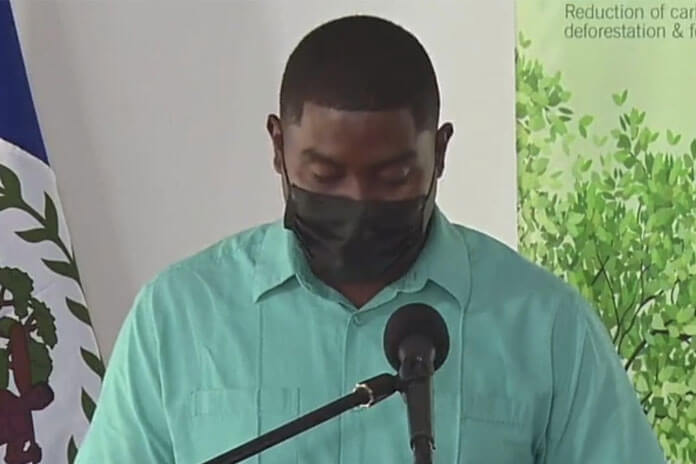BELMOPAN, Fri. Oct 8, 2021– Today, REDD+ closed phase one of its project that aims to secure finance through taking climate action. The theme, “Our Forest, Our Future,” serves as a cornerstone of the REDD+ work in Belize and symbolizes the need for consultation with stakeholder groups that will inherit forest resources and their related issues arising from climate change. Within the context of Belize, approximately 59% of the country is forest, but from the period 2001 to 2015, Belize has been experiencing a steady decline in forest cover – with the average loss amounting to approximately 0.39%, the losses attributed to economic development, hurricanes, pests, and agriculture.
Belizeans in many communities are very dependent on forest resources. The indigenous communities have been especially disadvantaged since they have traditionally utilized the resources for crop cultivation and, most recently, for tourism. The importance of climate resilience and climate action has impelled REDD+ to facilitate carbon projects that influence greater protection of forested areas and provide reimbursement for curbing the effects of climate change through climate stocks.
Indigenous peoples and youth are crucial stakeholders in forest-related resources, and they have become an integral part of the first phase that is now coming to an end. The first phase of the project focused primarily on consultations and assessing status and requisites that must be completed before Belize can sell carbon credits. The first component of the first phase focused on establishing a consultation framework, and this has been completed.
A REDD+ Coordination Unit has since been established, fully staffed, fully functional, and optimized. Further entailed in this component, REDD+ created a Grievance and Redress Mechanism. This mechanism facilitates the system that will receive and track all feedbacks and complaints received by the REDD+ Coordination Unit. The website is already fully functional and is hosted at www.fgrm.gov.bz, and has fielded a total of 5 grievances to date.
In this phase, REDD+ also contracted a consultancy firm that commenced workshop sessions to discuss the Strategic Environmental and Social Assessment (SESA) Report. The SESA component hopes to identify critical environmental and social issues that may affect key operations of REDD+ that provide context for key ecological and social issues associated with deforestation and forest degradation. This aspect has been delayed as a result of the ongoing pandemic and the strain it places on face-to-face consultations. This process, however, will be continued in the second phase, where REDD+ intends to draft the SESA report and implement strategies developed from consultation sessions.
In his welcome address at the event, Dr. Kenrick Williams, Chief Executive Officer in the Ministry of Sustainable Development, Climate Change, and Disaster Risk Management, presented a brief overview of the REDD+ project, commenting on all facets of its implementation. He said, “Today, we learn about a project that can really be impacting to the long-term sustainable development of Belize, and when we talk about impact, we talk about impact in the most true sense – social, economic, environmental as well as institutional. The work to get REDD+ in Belize was an idea birthed by the Forest Department which culminated in a signing of a grant agreement with the World Bank.” He noted that Belize consistently supported conservation efforts. He underscored that through the implementation of the project, Belize will finally be able to reap benefits from its sacrifices made to preserve Belize’s natural resources.
REDD+ has also been in communication with a global imaging and cloud-based solutions company, TerraPulse. With its use of satellite imaging and data analysis to measure large landscapes, this company’s technology will become a crucial part in monitoring developments in climate-resilience efforts. The use of this technology will make REDD+ more effective in determining loss of organic carbon due to deforestation, more able to estimate activity of deforestation, forest degradation, and forest regeneration. This will serve as a more accurate means of analyzing plots, an important part in selling carbon stocks.

